Valentina Rizzello
Predicting CSI Sequences With Attention-Based Neural Networks
Feb 01, 2023Abstract:In this work, we consider the problem of multi-step channel prediction in wireless communication systems. In existing works, autoregressive (AR) models are either replaced or combined with feed-forward neural networks(NNs) or, alternatively, with recurrent neural networks (RNNs). This paper explores the possibility of using sequence-to-sequence (Seq2Seq) and transformer neural network (TNN) models for channel state information (CSI) prediction. Simulation results show that both, Seq2Seq and TNNs, represent an appealing alternative to RNNs and feed-forward NNs in the context of CSI prediction. Additionally, the TNN with a few adaptations can extrapolate better than other models to CSI sequences that are either shorter or longer than the ones the model saw during training.
Variational Inference Aided Estimation of Time Varying Channels
Nov 03, 2022Abstract:One way to improve the estimation of time varying channels is to incorporate knowledge of previous observations. In this context, Dynamical VAEs (DVAEs) build a promising deep learning (DL) framework which is well suited to learn the distribution of time series data. We introduce a new DVAE architecture, called k-MemoryMarkovVAE (k-MMVAE), whose sparsity can be controlled by an additional memory parameter. Following the approach in [1] we derive a k-MMVAE aided channel estimator which takes temporal correlations of successive observations into account. The results are evaluated on simulated channels by QuaDRiGa and show that the k-MMVAE aided channel estimator clearly outperforms other machine learning (ML) aided estimators which are either memoryless or naively extended to time varying channels without major adaptions.
Learning Representations for CSI Adaptive Quantization and Feedback
Jul 13, 2022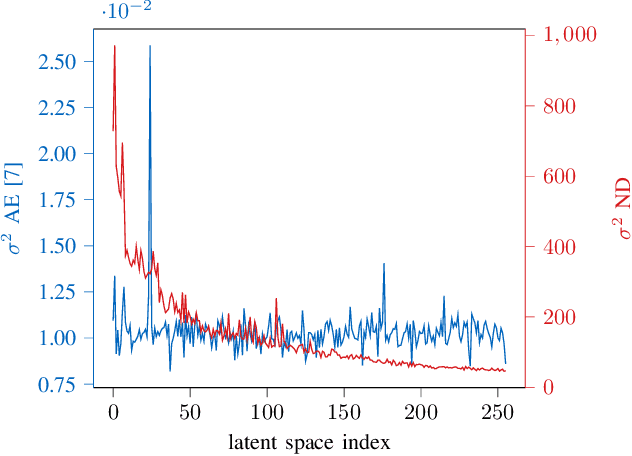
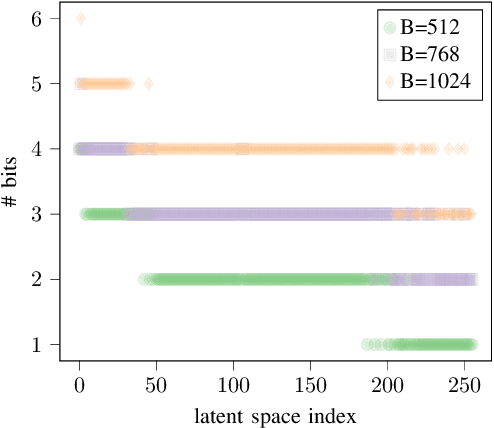
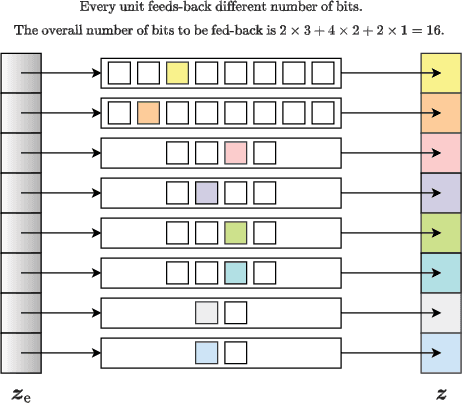
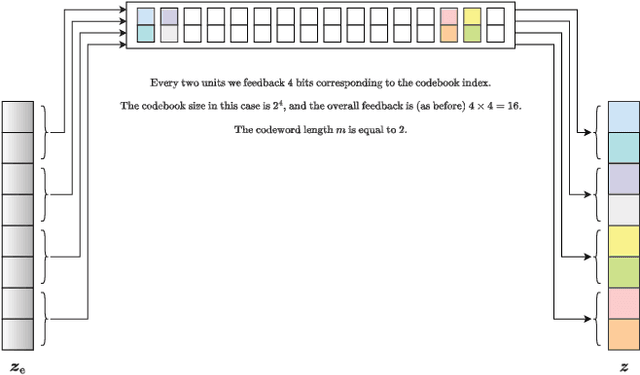
Abstract:In this work, we propose an efficient method for channel state information (CSI) adaptive quantization and feedback in frequency division duplexing (FDD) systems. Existing works mainly focus on the implementation of autoencoder (AE) neural networks (NNs) for CSI compression, and consider straightforward quantization methods, e.g., uniform quantization, which are generally not optimal. With this strategy, it is hard to achieve a low reconstruction error, especially, when the available number of bits reserved for the latent space quantization is small. To address this issue, we recommend two different methods: one based on a post training quantization and the second one in which the codebook is found during the training of the AE. Both strategies achieve better reconstruction accuracy compared to standard quantization techniques.
Machine Learning-Based CSI Feedback With Variable Length in FDD Massive MIMO
Apr 10, 2022

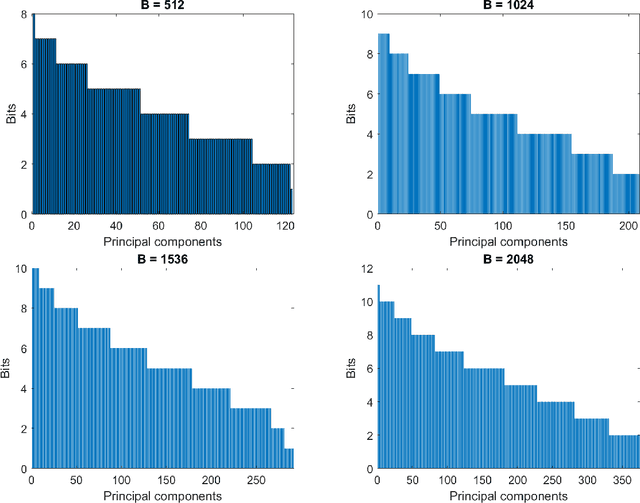
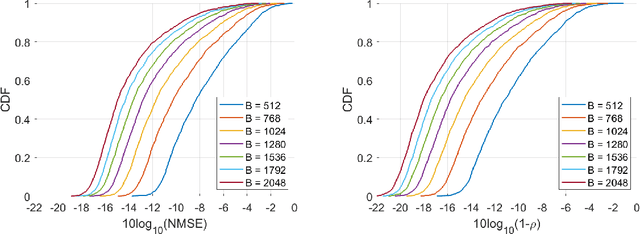
Abstract:To fully unlock the benefits of multiple-input multiple-output (MIMO) networks, downlink channel state information (CSI) is required at the base station (BS). In frequency division duplex (FDD) systems, the CSI is acquired through a feedback signal from the user equipment (UE). However, this may lead to an important overhead in FDD massive MIMO systems. Focusing on these systems, in this study, we propose a novel strategy to design the CSI feedback. Our strategy allows to optimally design the feedback with variable length, while reducing the parameter number at the UE. Specifically, principal component analysis (PCA) is used to compress the channel into a latent space with adaptive dimensionality. To quantize this compressed channel, the feedback bits are smartly allocated to the latent space dimensions by minimizing the normalized mean squared error (NMSE) distortion. Finally, the quantization codebook is determined with k-means clustering. Numerical simulations show that our strategy improves the zeroforcing beamforming sum rate by 26.8%, compared with the popular CsiNet. The number of model parameters is reduced by 24.9 times, thus causing a significantly smaller offloading overhead. At the same time, PCA is characterized by a lightweight unsupervised training, requiring eight times fewer training samples than CsiNet.
Learning the CSI Denoising and Feedback Without Supervision
Apr 14, 2021
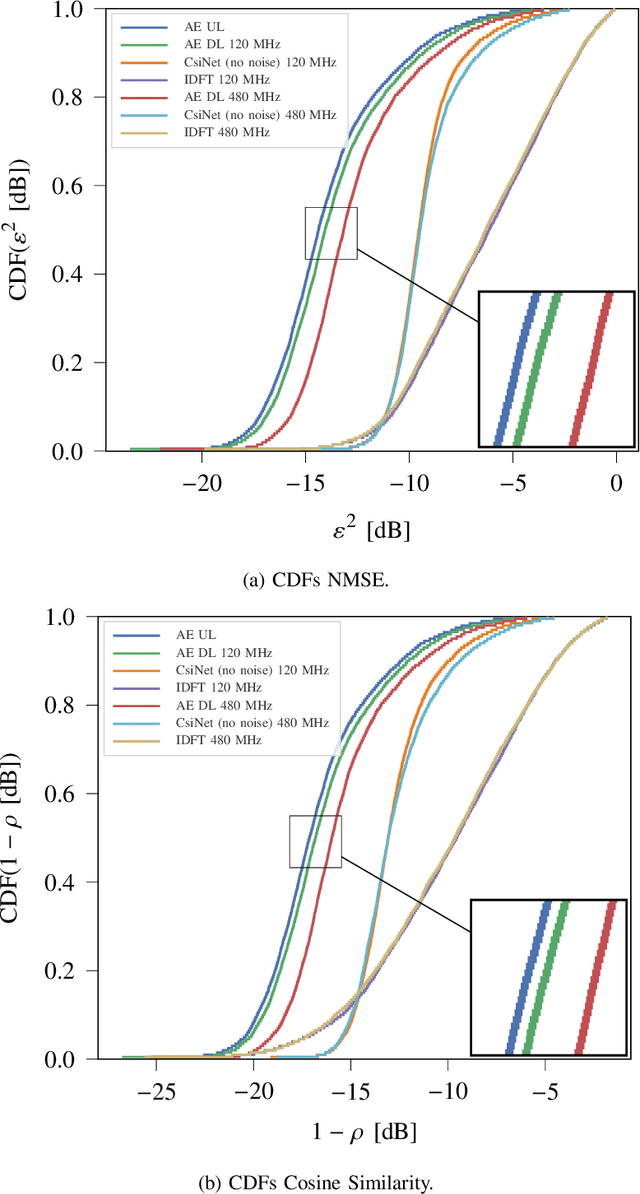
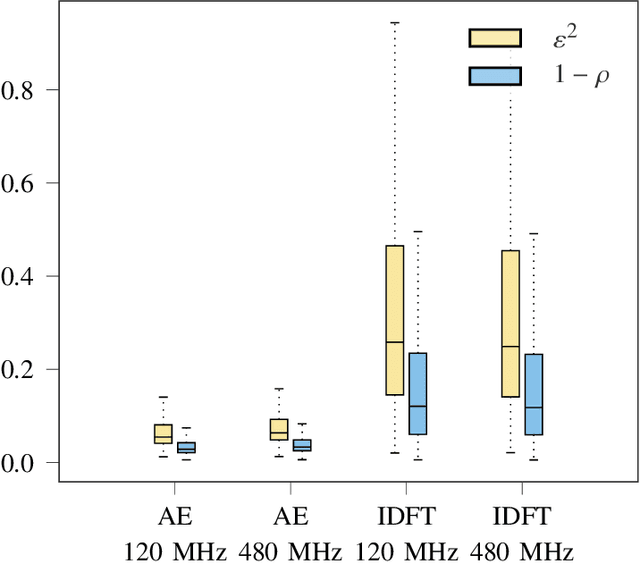
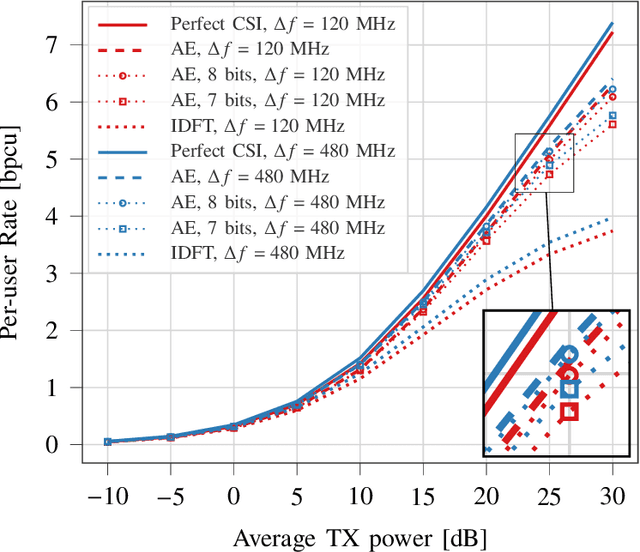
Abstract:In this work, we develop a joint denoising and feedback strategy for channel state information in frequency division duplex systems. In such systems, the biggest challenge is the overhead incurred when the mobile terminal has to send the downlink channel state information or corresponding partial information to the base station, where the complete estimates can subsequently be restored. To this end, we propose a novel learning-based framework for denoising and compression of channel estimates. Unlike existing studies, we extend a recently proposed approach and show that based solely on noisy uplink data available at the base station, it is possible to learn an autoencoder neural network that generalizes to downlink data. Subsequently, half of the autoencoder can be offloaded to the mobile terminals to generate channel feedback there as efficiently as possible, without any training effort at the terminals or corresponding transfer of training data. Numerical simulations demonstrate the excellent performance of the proposed method.
 Add to Chrome
Add to Chrome Add to Firefox
Add to Firefox Add to Edge
Add to Edge